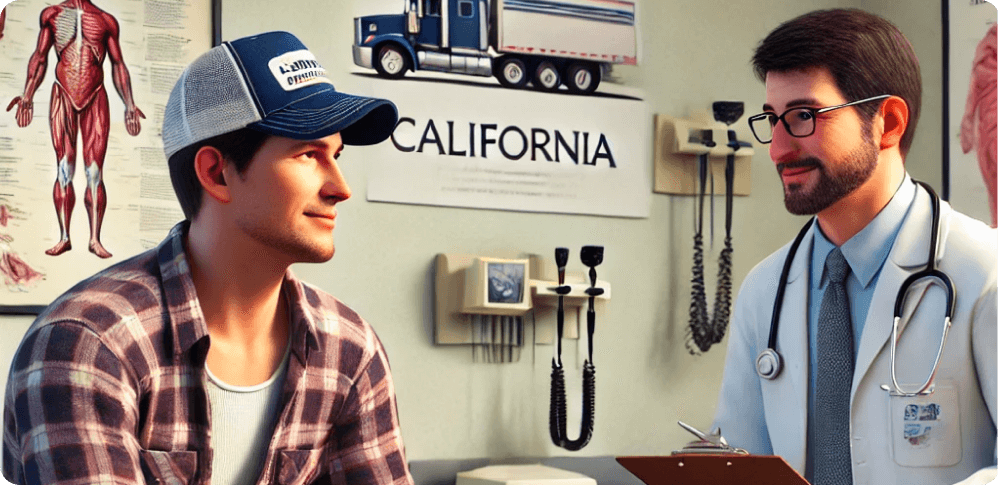Medical Examination for Truck Drivers in California
11/25/2024
Guides

Who Must Undergo a Medical Examination?
Commercial Driver's License (CDL) holders operating interstate, as well as those driving specialized vehicles (such as school buses, youth buses, activity buses, general-purpose vehicles, or agricultural vehicles), are required to complete a medical examination performed by professionals listed in the National Registry of Certified Medical Examiners (NRCME).
You can find a certified medical professional on the official registry website.
The registry is a federal program designed to enhance road safety and improve driver health. All medical examiners undergo training and certification to meet federal standards.
Who Pays for the Medical Examination?
If a CDL is required for your job, the employer is obligated to cover the cost of the medical examination, provided it has not already been conducted before the job application. This is stipulated under California Labor Code (CLC §231).
Documents Required for CDL
CDL drivers must provide two key documents:
Drivers applying for a CDL can start the process, including taking vision tests and traffic law knowledge exams (a free service for theory test preparation can assist here), without the medical report. However, the CDL will not be issued until proof of a completed medical examination is provided.
Both forms must be completed by a certified physician from the National Registry, such as:
Licensed Doctor of Medicine (MD)
Doctor of Osteopathy (DO)
Licensed Physician Assistant (PA)
Advanced Practice Registered Nurse (APRN)
Doctor of Chiroprac-tic (DC)
Submission of MER and MEC
CDL drivers (both interstate and intrastate) who pass the medical examination must submit a valid (original or copy) MER and MEC to the DMV when applying for an original Commercial Learner’s Permit (CLP), CDL, or renewing the medical certification.
Medical forms are valid for 2 years, so drivers should monitor expiration dates.
MER: Submit only pages 1–4. Page 5 addresses medical standard exemptions, which California does not permit.
MEC: The medical examiner must complete and sign the MEC form, which drivers must carry while operating a commercial vehicle. An expired certificate may result in penalties.
Special Note: School bus drivers aged 65 and older must submit a new medical report annually to the DMV (§12517.2(a)(b) of the California Vehicle Code).
What If You Fail the Medical Examination?
If you do not meet federal medical standards, you may apply for a Restricted Intrastate Medical Certificate (DL 51B) by:
Submitting the MER form with a notation of failed examination
Visiting the DMV to review your application
Note: Standard DL 51 forms are no longer accepted.
Completed MER and MEC forms (if the examination is passed) can be submitted to the DMV office or mailed to:
Department of Motor Vehicles CDL Unit, MS G204
PO Box 944278
Sacramento, CA 94244-2780
Interstate vs. Intrastate Commercial Transport
Under CFR Title 49 §383.71, CDL drivers must declare the type of commercial activity when contacting the DMV. In California, the categories are:
Non-Excepted Interstate (NI). Activities involving:
transportation between points in different states or outside the U.S
movement across state lines
trade or commerce beginning or ending outside the state
Non-Excepted Intrastate (NA). Transportation within a single state without crossing state borders. Drivers in this category receive a "State Only" (40/K) restriction.
California does not issue CDL classifications for Excepted Interstate (EI) or Excepted Intrastate (EA), which are exemptions from medical requirements.
IMPORTANT: Even if you do not leave the state, you may still engage in interstate commercial transport. The DMV strongly recommends selecting Non-Excepted Interstate (NI) if you meet federal requirements and there is a possibility you will drive in interstate commerce.
Good luck on your journey to obtaining your CDL!
